
Early in April 1941 at a party in Flat No 6 in the gleaming, white, ultra-modernist Isokon Building (otherwise known as the Lawn Road Flats) in London's leafy Hampstead, there was an encounter between two men that would affect the course of the 20th century. It could also, if there had ever been tangible evidence it had taken place, have meant the hangman's noose for one of the participants.
The younger of the pair was tall, thin, with round spectacles and a high forehead, and wore a serious expression on his face. The other, with sharp chiselled features and rather feminine eyes, appeared notably more relaxed despite a stiff, military bearing.
The individuals concerned were German-born Klaus Emil Julius Fuchs, a brilliant 29-year-old theoretical physicist just released from an internment camp in Canada, and 40-year-old Simon Davidovich Kremer, a former tank commander, and now officially secretary to the military attaché at the Soviet Embassy in London.
They had one thing in common - they were both committed communists with the interests of Stalin's Soviet Union at heart. This was fine for Kremer, whose day job was official business for the Kremlin - although by night, as it were, he was a spy, working for the Soviet 'Fourth Department' of military intelligence (the GRU).
Fuchs, however, was doing everything he could to conceal his ideological beliefs from his British hosts. It was bad enough - but not surprising, given his nationality and the suspicions of wartime that he had just spent six months in camps in the Isle of Man and Canada. But to have had his past Communist Party associations revealed would have put an end to his application for British citizenship and his hopes of an academic career in the country.
SEALING THE DEAL
This story is from the {{IssueName}} edition of {{MagazineName}}.
Start your 7-day Magzter GOLD free trial to access thousands of curated premium stories, and 9,000+ magazines and newspapers.
Already a subscriber ? Sign In
This story is from the {{IssueName}} edition of {{MagazineName}}.
Start your 7-day Magzter GOLD free trial to access thousands of curated premium stories, and 9,000+ magazines and newspapers.
Already a subscriber? Sign In
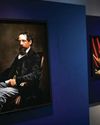
'Dickens's evocation of the fears, excitement and confusion of childhood is peerless'
DR LEE JACKSON ON WHY CHARLES DICKENS REMAINS RELEVANT TODAY
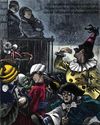
THE AUTHOR GOES ABROAD
Dickens expanded his horizons and boosted his fan-base by venturing overseas - but global fame came with a cost
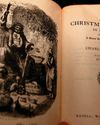
REVIVING THE FESTIVE SPIRIT
A Christmas Carol wasn't just a bestseller - it changed the way that Britons chose to mark the festive season
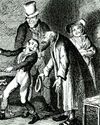
GIVING THE POOR A VOICE
From Hard Times to Oliver Twist, Charles Dickens used his pen to help illuminate the lives of the less fortunate
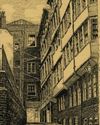
A JOURNEY THROUGH DICKENS'S LONDON
The works of Charles Dickens are synonymous with visions of Victorian London. We talk to Dr Lee Jackson about the author's love of the capital, and the locations that most inspired him
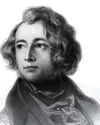
EXCEEDING EXPECTATIONS
Dr Lee Jackson chronicles Charles Dickens's journey from down-at-luck teenager to titan of Victorian literature
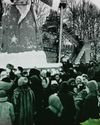
GIFTS, TREES & FEASTING
We take a journey through the photo archives to reveal how Christmas and its many traditions have been celebrated over the years - and around the world
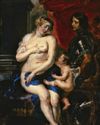
WHAT GREAT PAINTINGS SAY
We explore the story behind an allegorical painting that celebrates the triumph of love over hate, peace over war
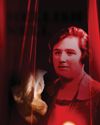
HELLISH NELL
Malcolm Gaskill delves into the life of Helen Duncan - the fraudulent Scottish medium whose ectoplasm-filled seances saw her ending up on the wrong side of the law
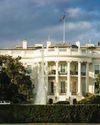
7 THINGS YOU (PROBABLY) DIDN'T KNOW ABOUT THE WHITE HOUSE
Presidential historian Dr Lindsay M Chervinsky reveals some of the most surprising facts about the world-famous US residence